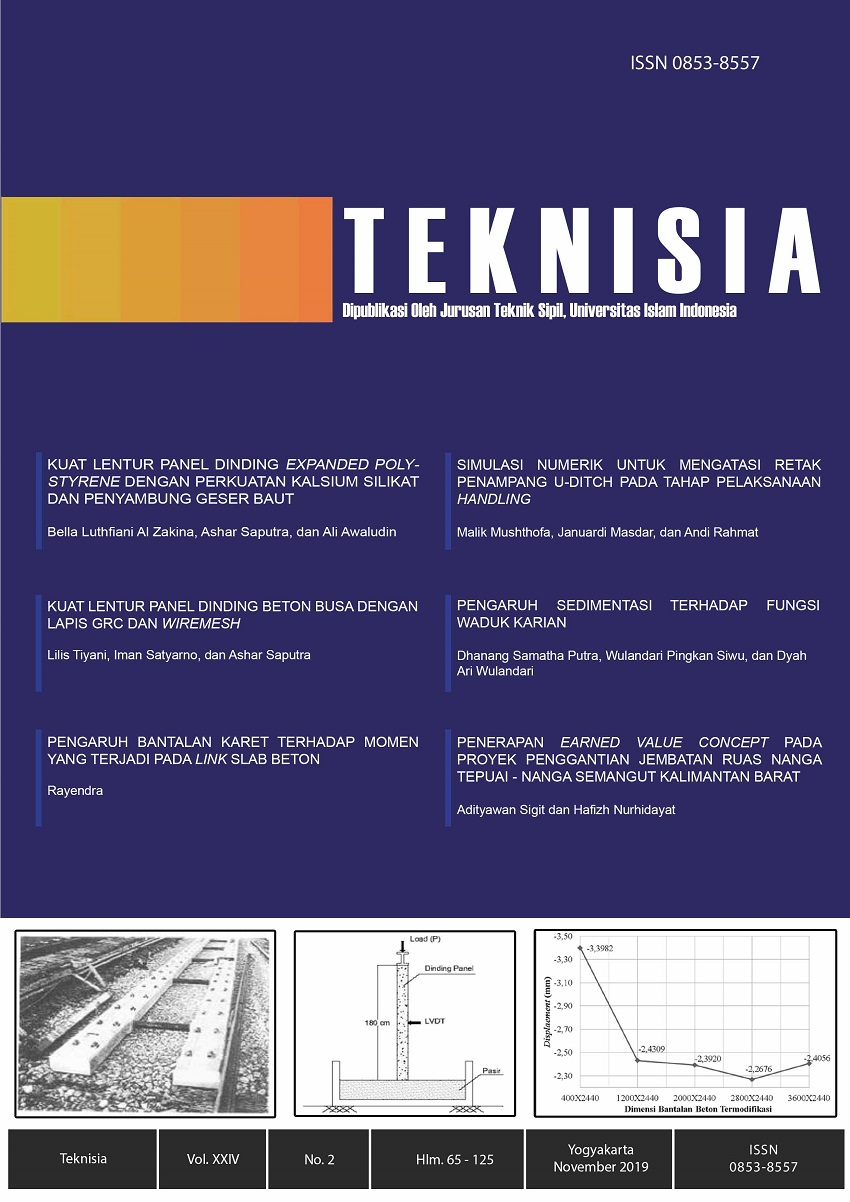Main Article Content
Abstract
Keywords
Article Details
Under the following term:
-
Attribution — You must give appropriate credit, provide a link to the license, and indicate if changes were made. You may do so in any reasonable manner, but not in any way that suggests the licensor endorses you or your use.
-
ShareAlike — If you remix, transform, or build upon the material, you must distribute your contributions under the same license as the original.
- No additional restrictions — You may not apply legal terms or technological measures that legally restrict others from doing anything the license permits.
References
- Husen, A. 2011. “Manajemen Proyek: Perencanaan, Penjadwalan, dan Pengendalian Proyek”. ANDI. Yogyakarta.
- Kerthajaya, I.K. 2014. “Evaluasi Pengendalian Waktu dan Biaya Proyek Pembangunan Rumah Kost Dua Lantai di Keputih Tegal Timur Surabaya”. Jurnal Teknik Sipil Untag Surabaya. Vol. 7, No.1. 53-62.
- Maromi, M.I. dan Indryani, R. “Metode Earned Value untuk Analisa Kinerja Biaya dan Waktu Pelaksanaan pada Proyek Pembangunan Condotel De Vasa Surabaya”. Jurnal Teknik ITS. Vol. 4, No.1. 54-59.
- Proboyo, B. 1999. “Keterlambatan Waktu Pelaksanaan Proyek: Klasifikasi dan Peringkat dari Penyebab-Penyebabnya”. Dimensi Teknik Sipil. Vol.1 No.1. 49-58.
- Soeharto, I. 1997. “Manajemen Proyek Dari Konseptual Sampai Operasional”. Erlangga. Jakarta.
- Widiasanti, I. dan Lenggogeni. 2013. “Manajemen Konstruksi”. Remaja Rosdakarya Offset. Bandung.
References
Husen, A. 2011. “Manajemen Proyek: Perencanaan, Penjadwalan, dan Pengendalian Proyek”. ANDI. Yogyakarta.
Kerthajaya, I.K. 2014. “Evaluasi Pengendalian Waktu dan Biaya Proyek Pembangunan Rumah Kost Dua Lantai di Keputih Tegal Timur Surabaya”. Jurnal Teknik Sipil Untag Surabaya. Vol. 7, No.1. 53-62.
Maromi, M.I. dan Indryani, R. “Metode Earned Value untuk Analisa Kinerja Biaya dan Waktu Pelaksanaan pada Proyek Pembangunan Condotel De Vasa Surabaya”. Jurnal Teknik ITS. Vol. 4, No.1. 54-59.
Proboyo, B. 1999. “Keterlambatan Waktu Pelaksanaan Proyek: Klasifikasi dan Peringkat dari Penyebab-Penyebabnya”. Dimensi Teknik Sipil. Vol.1 No.1. 49-58.
Soeharto, I. 1997. “Manajemen Proyek Dari Konseptual Sampai Operasional”. Erlangga. Jakarta.
Widiasanti, I. dan Lenggogeni. 2013. “Manajemen Konstruksi”. Remaja Rosdakarya Offset. Bandung.
